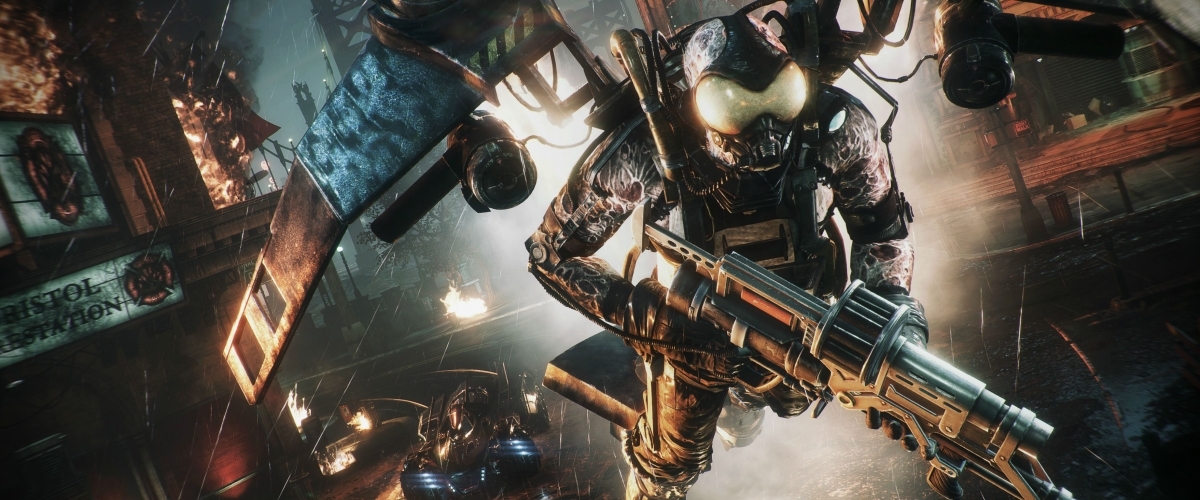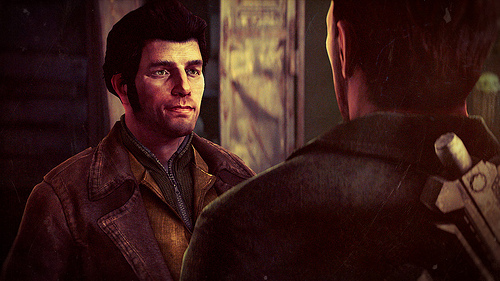Video game mocap and voice actors who are a part of the SAG-AFTRA union are currently in the middle of a strike, after almost two years of negotiating with some of the biggest publishers such as Activision, EA, and Take-Two (see the full list here). Blizzard, however, is not one of the companies that SAG-AFTRA is striking. GameSpot got the opportunity to talk to Overwatch voice actor Crispin Freeman about the strike, and he's unsurprisingly disappointed that it's gotten to this point with the other publishers.
"We negotiated with them for 19 months in good faith," Freeman said. "It's the longest negotiation SAG-AFTRA has ever done. It was the last thing we wanted to do, but they left us with no choice."
When asked what the most ideal outcome of this strike would be, Freeman's answer was simple: that voice actors are ensured safety, respect, "a tiny bit of shared prosperity," and that they and their contributions are treated as something valuable. "Because right now they treat us like we don't matter," he said.
One of the big things Freeman pointed out was that publishers would often not tell him what game he had been hired for, making it difficult to know the context of his role and whether he was being paid fairly for his work.
"I've been asked to work on games without knowing what the game was and then shown up and been told that I'm going to have to use the N word repeatedly as my character with no warning ahead of time," he said. "I've been asked to work on games without them saying that it's the same game again, and so they tried to undercut my salaries. It's a common drone with a lot of video game stuff."
"I understand the video game industry is very secretive, and so we told them it doesn't have to be during auditions. During auditions, keep it all codenames and top secret. But when you decide you want to hire an actor, and you call up their agent and say, 'We want you for this game,' you have to tell them what the game is. I don't know anyone who would go to work not knowing what they're working on, and yet we're asked to do this continuously."

While SAG-AFTRA is demanding certain things, Freeman says all of their proposals "exist in every other contract" that they, as actors, work under. According to him, SAG-AFTRA is just looking for "parity between the video game contract" and all of the others.
"I just feel it's time for the video game industry to put on its big boy pants and act like a proper entertainment company," the voice actor said. "And they're deathly afraid of that because they want to be able to exploit actors, they want to be able to exploit developers. They have a culture of exploitation. And they don't want to give that up because they're making a lot of money, and they don't want anyone to impact their bottom line on that."
As for the publishers, chief negotiator Scott Witlin said in October that the companies "did everything in their power to reach agreement with union leaders, offering a money package almost identical to SAG-AFTRA's last demand." Witlin also added at the time that the strike has "little to no immediate impact on the ability of fans to buy and play the video games they love as the majority of upcoming games already are in production."
"The sad part is that the very performers who these Companies value--and who are impacted by the union decision to strike--never got a chance to vote on the companies' proposal," Witlin said. According to the union, all games from these companies that went into production after February 17, 2015, are covered by the strike.
[The publishers] have told us in negotiations that we don't matter.
Freeman told us frequently in our interview that, during negotiations, publishers said voice actors didn't matter, but despite the way they've been treated, he doesn't think that most of these companies are "bad"--even the ones he disagrees with. "I think they just don't know," he said, explaining that these publishers and developers don't understand what it's like to work with actors. He believes that this is mostly due to the fact that, unlike in film, video game companies don't deal with actors sometimes until years after development has started. And when he does end up bringing it to the attention of these companies, he says they're often understanding of why an actor needs a certain amount of safety and time to take care of their voice.
"So many of them are usually okay with that, but this contract is just to make sure that we never go below a certain minimum," he said. "It's a shame that we have to say, 'Hey, we need to have stunt coordinators on set,' or 'Hey, you need to understand that we can't scream, 'Grenade!' for four hours.' The fact that we can do it for two hours is a major miracle."
And Freeman says he recognizes that voice actors aren't the only ones getting exploited. He said that publishers "exploit all sorts of people lower on the chain" in the industry and reiterated that the companies are "deathly afraid" that someone will push back and say, "Enough is enough."

However, the voice of Overwatch's Winston mentioned that some video game companies do "play very, very nice" and show voice actors respect. As someone who has worked on both Overwatch and Diablo III (in which he played the male Wizard), Freeman was happy to say that he's "always had wonderful relations with Blizzard." He noted that the union has a different agreement with Blizzard and is therefore not striking the developer, despite its connection with Activision.
"There was a time when Blizzard was non-union, but from the moment it decided to go union and work with the union, Blizzard has always behaved admirably and has always respected both its actors and the union rules," Freeman said. "And we would be quite happy if the industry acted more like Blizzard."
As for the fans, Freeman hopes they'll support actors and tell publishers how much they value them in games.
"[The publishers] have told us in negotiations that we don't matter," he said. "That the voices and the motion capture just aren't that important, that we're just a tiny bit of the whole piece and no one cares about us. I think it's important if the fans believe in our case and want to stand with us that they tell the publishers over and over again that, yes, these performances in games matter, these motion capture performers and these voice actors matter.
"Because they keep saying we don't."